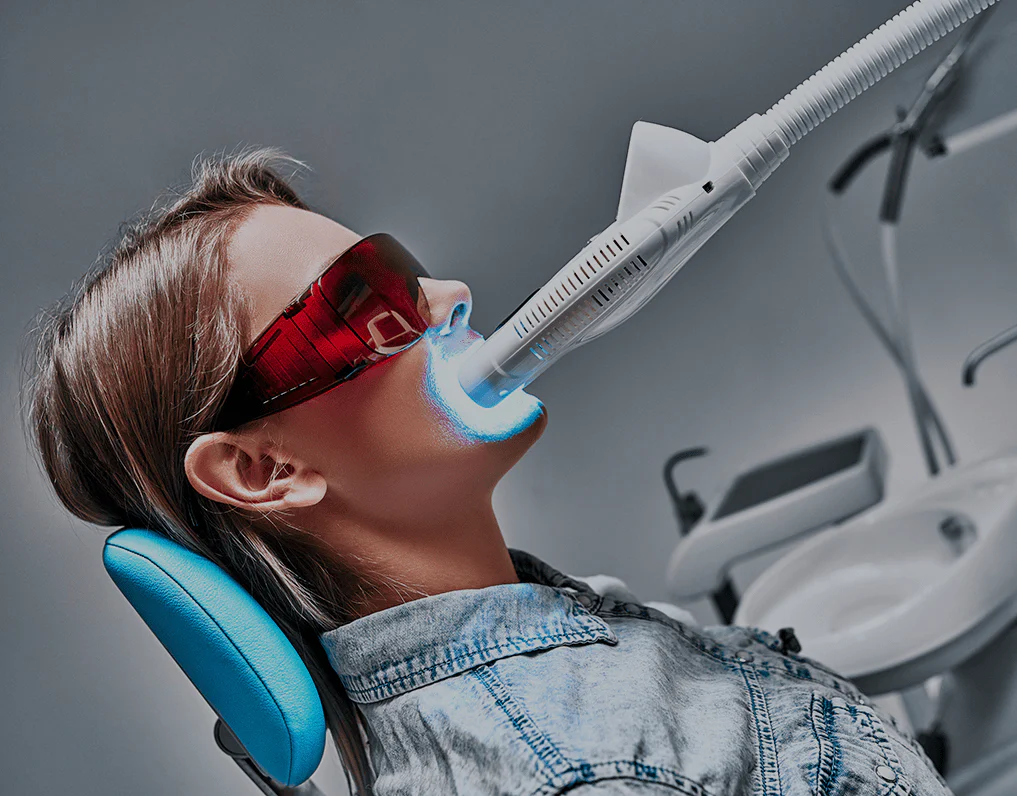Laser teeth whitening is widely regarded as a safe and effective cosmetic dental procedure when performed by a qualified dental professional. However, like any treatment, it’s important to understand both the benefits and potential risks to make an informed decision. Let’s take a closer look at the safety of laser teeth whitening for both your teeth and gums.
Safety for Your Teeth
Laser teeth whitening typically uses a peroxide-based bleaching gel that is activated by a dental laser. This process helps break down stains and discoloration on the enamel surface.
- Enamel Protection: When administered correctly, the procedure does not harm the enamel. Dentists use a controlled concentration of whitening agents and limit exposure time to prevent any long-term damage.
- Tooth Sensitivity: Some patients may experience temporary tooth sensitivity during or after treatment. This is usually due to the peroxide penetrating the enamel to reach the dentin. The sensitivity generally subsides within 24 to 48 hours.
- Long-Term Effects: There is no evidence that laser whitening causes permanent damage to the tooth structure when performed under professional supervision.
Safety for Your Gums
The gums are more sensitive than the teeth and require additional protection during laser whitening.
- Gum Shielding: Dentists use a protective barrier or rubber dam to cover the gums before applying the whitening gel. This minimizes direct contact with the bleaching agent and reduces the risk of irritation or burns.
- Mild Irritation: In rare cases, patients may experience slight gum irritation or redness if the gel accidentally touches soft tissue. These effects are usually mild and temporary.
- Laser Precision: The use of laser light allows for targeted activation of the whitening gel, which minimizes exposure to surrounding tissues.
Key Factors That Ensure Safety
- Professional Application: The most important safety factor is having the procedure done by a licensed and experienced dentist. DIY or over-the-counter laser kits can increase the risk of improper use and complications.
- Pre-Treatment Evaluation: Dentists typically assess your oral health before the procedure to ensure that you don’t have issues like cavities, gum disease, or enamel erosion that could make whitening unsafe.
- Quality Products: Reputable clinics use FDA-approved whitening agents and modern laser technology that adhere to safety standards.
Who Should Avoid Laser Whitening?
Laser teeth whitening may not be suitable for everyone. You should avoid the procedure if you:
- Have active tooth decay or gum disease
- Are pregnant or breastfeeding
- Have extremely sensitive teeth or enamel defects
- Have dental restorations (like crowns or veneers) on your front teeth — these won’t respond to whitening agents
Bottom Line:
Laser teeth whitening is safe for your teeth and gums when carried out by a professional. With proper care and precautions, you can enjoy a brighter smile with minimal risk. If you’re considering this treatment, schedule a consultation with a qualified dentist to determine if it’s right for you.




